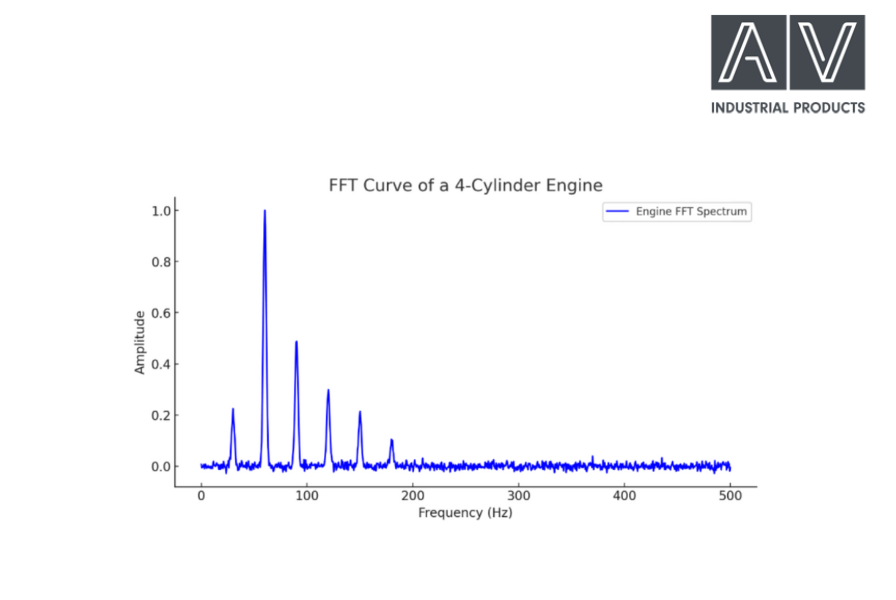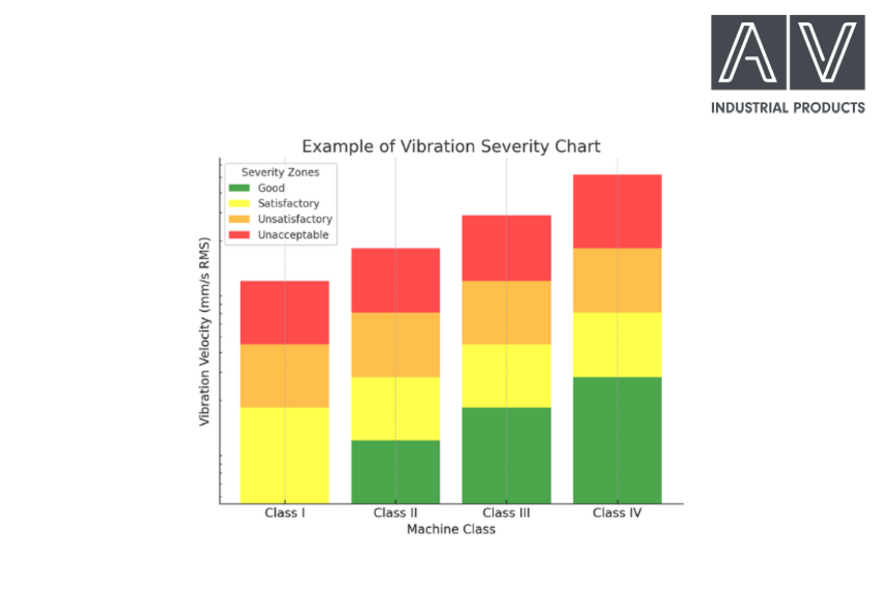Vibration Testing
Vibration testing and analysis play a crucial role in the mechanical and industrial sectors, ensuring machine longevity, improving operational efficiency and minimising downtime. Anti-vibration mountings are widely used in machinery such as generators, construction vehicle engines and pumps to control and reduce vibration and it effects.
Understanding the principles of vibration isolation engineering and material properties of elastomers is essential for optimising system performance. The shift towards electrification in industrial and automotive applications presents different vibration characteristics compared to internal combustion engine-driven machinery, requiring a refined approach to vibration analysis.
At AV Industrial Products, we offer professional vibration testing and analysis services, leveraging our expertise in FFT analysis and vibration isolation. Our experienced vibration engineers are available to visit customer sites to conduct in-depth vibration testing, identify problematic vibration sources, and provide expert recommendations.
Our Vibration Analysis Includes:
On-site Vibration Testing: Using high-precision wired and wireless accelerometers, our engineers can capture real-time vibration data under operational conditions.
Comprehensive Analysis: We apply FFT analysis to evaluate vibration characteristics, detect anomalies, and identify disturbing frequencies.
Technical Reports: A detailed written report is provided, including the results of the analysis, key findings, and performance assessments.
Expert Recommendations: Based on the test results, we offer guidance on vibration mitigation strategies, optimal anti-vibration mountings, and corrective actions to improve machinery performance and longevity.
Our vibration testing services cater to a variety of industries, including construction vehicles and machinery, power generation equipment, and general industrial machinery.
Fast Fourier Transform (FFT) Analysis
FFT analysis is a mathematical technique used to transform time-domain vibration signals into the frequency domain. This allows engineers to analyse the vibrational characteristics of mechanical systems by decomposing complex vibration signals into their constituent frequencies.
The FFT is an optimised computational algorithm that efficiently computes the Discrete Fourier Transform (DFT), making real-time signal analysis feasible for vibration monitoring applications. By applying FFT to vibration signals captured by accelerometers, engineers can determine dominant frequencies, identify resonances and detect anomalies such as misalignment, unbalance and bearing defects.

ISO Standards for Vibration Measurement and Analysis
International standards provide guidelines for evaluating machine and vehicle vibration, ensuring safety, and maintaining operational efficiency. The most relevant standards in vibration analysis include:
ISO 10816: Mechanical Vibration – Evaluation of Machine Vibration by Measurements on Non-Rotating Parts: This standard defines vibration limits for different types of rotating machinery, classifying machines based on power rating and foundation type. It provides vibration severity charts and recommends limits for acceptance testing and condition monitoring of industrial machines.

ISO 7919: Mechanical Vibration – Evaluation of Machine Vibration by Measurements on Rotating Shafts: Unlike ISO 10816, which focuses on non-rotating components, ISO 7919 provides guidelines for measuring vibration directly on rotating shafts. It is primarily used for high-speed rotating machinery, such as turbines, compressors, and pumps, where shaft displacement and dynamic behaviour are critical to performance.
ISO 2631: Evaluation of Human Exposure to Whole-Body Vibration: This standard applies to human vibration exposure in workplace environments, such as vehicle drivers, heavy machinery operators, and industrial settings. It assesses vibration severity based on acceleration levels and frequency content, helping to establish safe exposure limits to prevent health risks.
Compliance with these ISO standards ensures accurate vibration measurement, consistent evaluation criteria, and enhanced machine reliability, contributing to improved safety and operational efficiency.
This study demonstrates the importance of vibration testing in optimising machine performance and ensuring compliance with industrial standards. The comparison between ICE-driven machinery and electrified systems highlights key differences in vibration sources and spectral characteristics.
AV Industrial Products Ltd provides expert on-site vibration testing, analysis, and vibration control solutions, delivering actionable insights and technical solutions to enhance operational efficiency and minimise vibration-related failures.
Get in touch with our team for professional and comprehensive vibration testing and analysis.
AV Industrial Products Ltd
www.avindustrialproducts.co.uk
engineering@avindustrialproducts.co.uk
+44 (0)116 2461261




